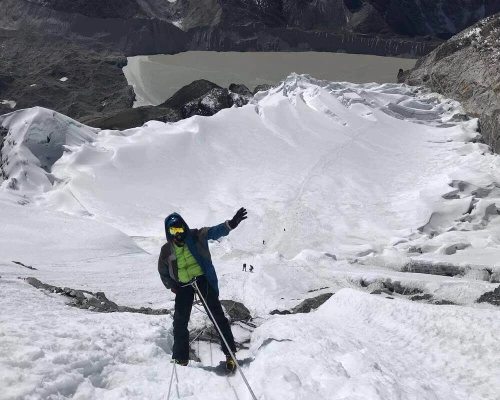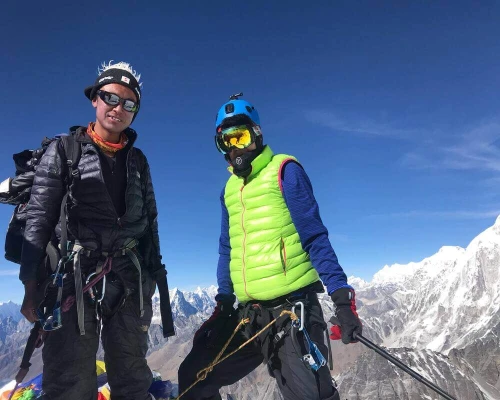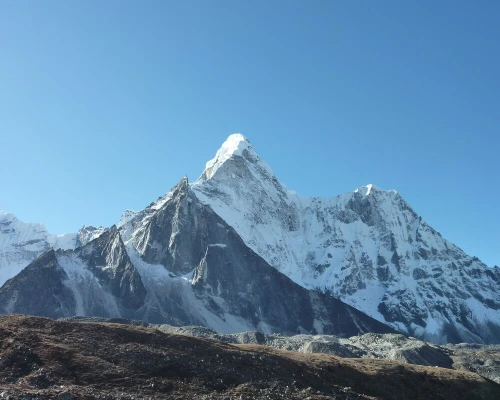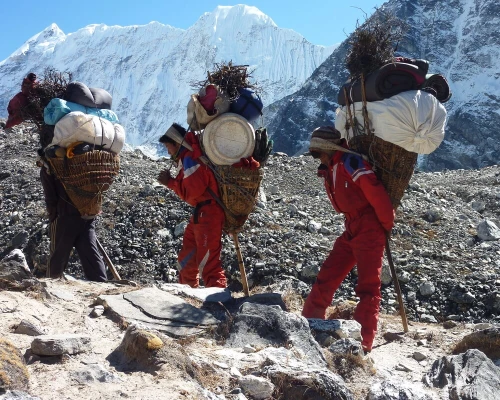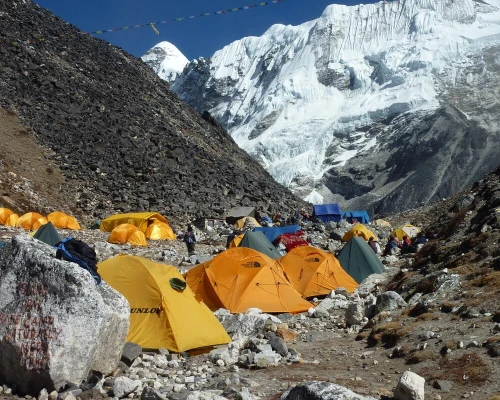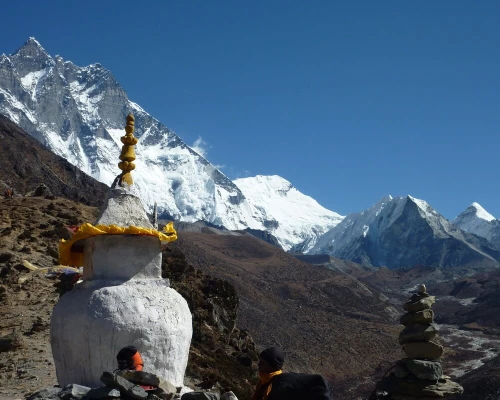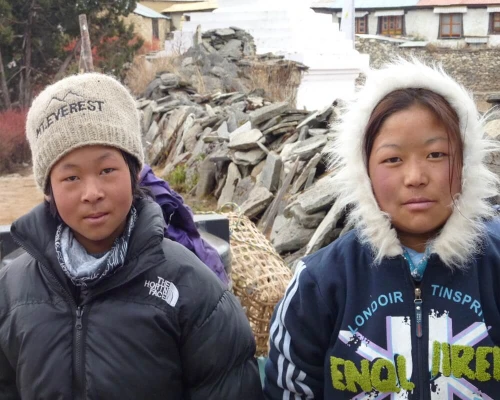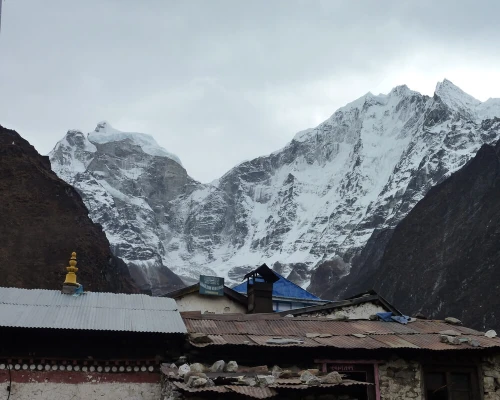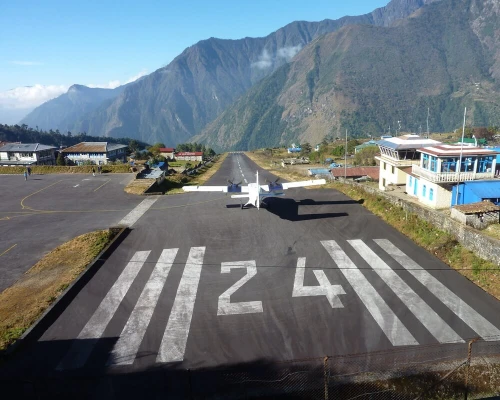Doing on an exhilarating 15 day adventure of Island Peak Climbing expedition, designed to ignite your sense of adventure and filled with wonderstruck. This thrilling journey will immerse you in the stunning Himalayan scenery, requiring careful acclimatization to reach the magnificent peak standing at an impressive altitude of 6,189m. Island Peak Climbing in Nepal is an enthralling and surreal experience, offering a mix of technical challenges and breathtaking views. By following the meticulously planned Island Peak Climbing Itinerary for 2025, you can expect an adrenaline-pumping adventure of a lifetime.
- Explore a different portion of the Everest region through the routes of Island Peak
- Get gratified with the gracious views of mountains and valleys
- Feel the pride and joy of standing on top of 6,189 meters
- Gain one of the best mountaineering experiences in the Everest region with comparatively fewer technical challenges
- Feel the joy of being accompanied by mountains like Ama Dablam, Cholatse, Pokalde, and some others.
- Enjoy the gracious beauty of the Chhukung Valley
- Adventurously camp in the Island Peak Base Camp
Island Peak Climbing Trip Offers
Take on the exciting Island Peak Climbing expedition in 2026, starting with a thrilling trek to Dingboche at 4,352m, passing through the vibrant Namche Bazaar, the Sherpa capital of the Everest region. Along the way, you will immerse yourselves in the Sherpa culture, spending two nights in Namche Bazaar and exploring the surrounding villages. As you continue our journey, You will encounter more Sherpa villages, including Dingboche at 4,410m, where you will experience the warm hospitality and kindness of the locals. This is all part of your comprehensive Island Peak Climbing Package.
Attractions of Island Peak Summit
Climb Island Peak Himalayas
The Everest region's wilderness is a magnificent natural treasure, housing a captivating array of plant and animal species. Within Khumbu, fortunate encounters with rare wildlife like Himalayan Thar, Musk deer, wild yak, snow leopards, Red Pandas, and other extraordinary creatures are possible. Embarking on the Climb Island Peak Himalayas adventure allows you to immerse yourself in the authentic beauty and rich mountain culture of the Khumbu region.
The villages along the Imja Tse route embody these authentic aspects. With their Sherpa settlements, they offer a deeper understanding of the region's essence. Chukung and Lobuche in Everest are notable examples of villages you'll encounter along the Island Peak Climbing Route Map. Additionally, the bustling Namche Bazaar and the remarkable Everest View Hotel, providing services in the lofty Himalayan landscape, are sources of excitement.
Moreover, the revered Tengboche Monastery holds great significance as the spiritual and cultural hub of the Sherpa community. Its presence adds a touch of enchantment to your journey through the Everest region. Experience the essence of the Sherpa people and explore the wonders of the Khumbu region on your Climb Island Peak expedition.
Island Peak Climb Difficulty Level
Acclimatization is crucial in the Island Peak Climb Adventure to prevent altitude sickness, and once adjusted, the risk diminishes as we navigate through changing elevations. This two week trek with the goal of summiting Island Peak requires excellent physical fitness and dedication, graded as Alpine 2B in terms of difficulty. Prior mountaineering experience is not mandatory, but good health and security are essential. Gradual acclimatization leads us to the summit, starting from the High Camp via the Island Peak Base Camp.
Best time to Climb Island Peak
The best time to go on the challenging Island Peak Climb is during the favorable weather conditions of spring and autumn. The months of February, March, April, May, September, October, November, and early December are considered the most suitable climbing seasons in Nepal. Choosing the right season ensures optimal conditions and maximizes the experience of this extraordinary adventure in the majestic Himalayas of Everest.
Cost of the Island Peak Climbing Package and the 15 Day Itinerary
Island Peak awaits you with the Nepal Nomad.
Nepal Nomad is a reputable travel company with 19 years of experience in the industry. We are licensed and have expertise in various sectors of travel. Their mission is to provide exceptional travel services to adventurers from around the world. The company has received positive reviews and support from satisfied travelers, which has contributed to its success. Nepal Nomad offers the flexibility to customize itineraries, including Island Peak Climb departures. We prioritize the well-being of their companions and have a professional and experienced climbing team. The team members hold certifications from NNMGA and IFMGA and are trained in first-aid, evacuation, and map reading to ensure a safe and enjoyable journey.




.webp)
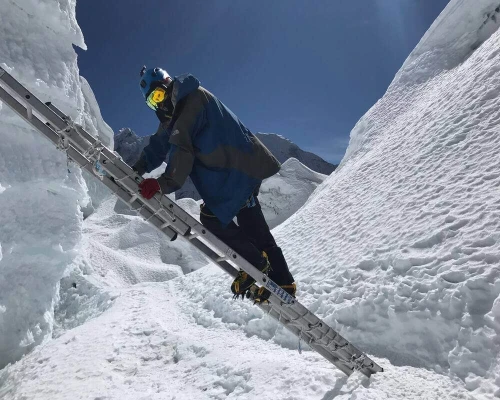
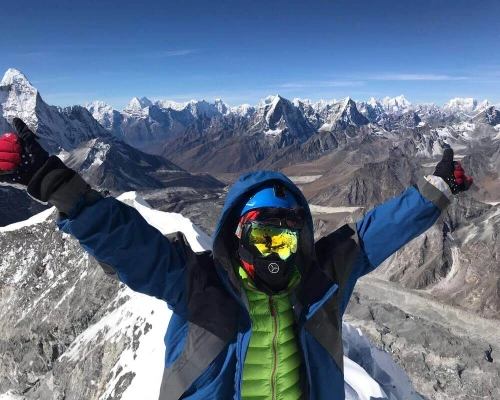
.webp)
